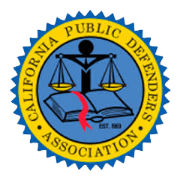The recent trend in California criminal law is to allow individuals sentenced to life in prison to seek “post-conviction relief” and attempt to have their sentences modified. For example, California Senate Bill 775 (SB 775) allows many people convicted of attempted murder and manslaughter to get a sentence reduction. SB 775 amends Section 1170.95 of the California Penal Code relating to murder. Under SB 775, an individual convicted of attempted murder and manslaughter may be able to have their sentence vacated and allow them to be resentenced. SB 775 applies to: (1) individuals convicted of attempted murder under the “natural and probable consequences doctrine or any other theory under which malice is imputed to the person based solely on their participation in the crime”; and (2) anyone convicted of manslaughter under the theory of felony murder or murder under the natural and probable consequences doctrine. To qualify for this reduced sentence, an individual must demonstrate that they meet the above-stated requirements. If a person fails to do so, the court may seek additional information or deny the request altogether.
In addition, individuals convicted of a nonviolent offense resulting from being a victim of “intimate partner violence” or “sexual violence” may also seek post-conviction relief. California Assembly Bill 124 (AB 124) was approved by Governor Newsom on October 8, 2021 and provides alternative options for charging, sentencing and resentencing victims of human trafficking. AB 124 provides that victims of intimate partner violence or sexual violence who commit nonviolent crimes or convictions can have their sentences vacated. The convicted individual must still petition the court for relief and prove by clear and convincing evidence that the crime was related to being a victim of sexual violence. This defense also applies when the victim was coerced to commit a crime as a direct result of being the victim of sexual violence at the time of the offense and had a reasonable fear of being harmed.
California Senate Bill 483 (SB 483) is another avenue for individuals to have their sentences modified. SB 483 permits the resentencing of people sentenced to prison prior enhancements. Specifically, SB 483 provides that any sentencing enhancement handed down prior to January 1, 2020, for a prior separate prison or county jail felony term is legally invalid. It also states that any sentencing enhancement imposed before January 1, 2018, for prior convictions of crimes specifically related to controlled substances is legally invalid. SB 483 does not provide relief to prior convictions of sexually violent offenses or for convictions that involve the use of a minor in the commission of offenses that involve controlled substances.
Furthermore, the new California Penal Code 1170.03 (PC 1170.03) creates a presumption favoring recall and resentencing. Pursuant to PC 1170.03, the District Attorney may recommend resentencing when a prison sentence is excessive or no longer serves the interest of justice. In making this determination, the District Attorney’s Office considers the following factors: (1) positive post-conviction conduct; (2) strong reentry plans; (3) input from the victim; and (4) evidence reflecting whether age, time served and diminished physical condition have reduced the inmate’s risk for future violence. California Penal Code 1170.01 (PC 1170.01) explicitly sets forth the resentencing program by which each District Attorney’s office must develop and implement a written policy used to “identify, investigate, and recommend individuals for recall and resentencing.”
Another new addition to the California Penal Code comes by way of PC 1473.7. PC 1473.7 allows people no longer in criminal custody to file a motion to vacate a conviction or sentence. A PC 1473.7 motion can be filed on one of two grounds: (1) if a prejudicial error damaged the defendant’s ability to meaningfully “understand, defend against, or knowingly accept the actual or potential adverse immigration consequences of a plea of guilty or nolo contendere”, or (2) there is newly discovered evidence of actual innocence. PC 1473.7 applies in the context of immigration when: (1) defense counsel violated the duty to investigate and accurately advise the defendant about specific immigration consequences of a plea; (2) defense counsel failed to defend against immigration consequences of a plea by attempting to plea bargain for an immigration-safe plea; and/or (3) the defendant failed to meaningfully understand the immigration consequences of a conviction.
The question of when an individual was required to learn about PC 1473.3 for immigration purposes was raised in the case of California v. Alatorre. In the mid-2000s, Carlos Alatorre was employed as a car salesperson when he lost his job. Alatorre started working as a lookout and driver for a drug importation ring for his brother-in-law. When Alatorre was arrested, he was immediately forthcoming about his involvement. He had already been in jail for 1.5 years when he was offered a plea deal to allow him to be released from custody with credit for time served. As a result, in 2008, Alatorre pled guilty to his first and only criminal charge: conspiracy to possess cocaine for sale. When he made the plea bargain, Alatorre did not know that this conviction would make him immediately deportable. In 2011, 3 years after his plea deal, he attempted to become a naturalized citizen, which had the unintended consequence of alerting criminal authorities to his criminal conviction. Within a few months, he was deported to Mexico. In 2020, Alatorre moved to vacate his conviction. The trial court denied his petition, claiming that he should have brought the motion in January 2017 (i.e., when PC 1473.7, which allows people to who are no longer in criminal custody to challenge old, unlawful convictions, was first enacted). The issue, in this case, was whether a petitioner’s “reasonable diligence” should be assessed when the ripening of an unexpected immigration consequence predates the creation of an avenue for relief. The California Court of Appeals found that the trial court applied an incorrect legal standard when it assumed that Alatorre was obligated to learn about section 1473.7 starting in January 2017, when it first became effective. As a result, the Court of Appeals found that the district court had committed a prejudicial error within the meaning of PC 1473.7 and reversed and remanded the trial court’s decision.
The case of Padilla v. Kentucky also examined PC 1473.7. In Padilla, the United States Supreme Court decided that criminal defense attorneys must advise non-citizens about the deportation risks of a guilty plea. The case extended the Supreme Court’s prior decisions on criminal defendants’ 6th Amendment right to counsel on immigration consequences. Padilla greatly expanded the duties of counsel. Following Padilla, if a law was ambiguous, an attorney must advise that deportation “may” result. Finally, attorneys must give their clients some advice about deportation. To obtain relief under Padilla, the following two criteria must be met: (1) the defendants must be “in custody,” and (2) the defendants must prove “ineffective assistance of counsel.”
In essence, PC 1473.7 created a mechanism to allow individuals who are no longer imprisoned to move to vacate a conviction or sentence on the ground that the conviction or sentence is legally invalid due to prejudicial error damaging the moving party’s ability to meaningfully understand, defend against, or knowingly accept the actual or potential adverse immigration consequences of a guilty plea or “nolo contendre.” PC 1473.3 significantly increased the ability of people with immigration issues to withdraw their guilty pleas.
If you or a loved one are faced with federal or state charges, it is imperative to immediately retain a knowledgeable defense attorney. A skilled criminal defense attorney can advocate fervently on your behalf, often resulting in the reduction or total dismissal of charges. The criminal defense system is exceedingly difficult to navigate and having an adept attorney battling on your behalf dramatically increases your likelihood of success.




